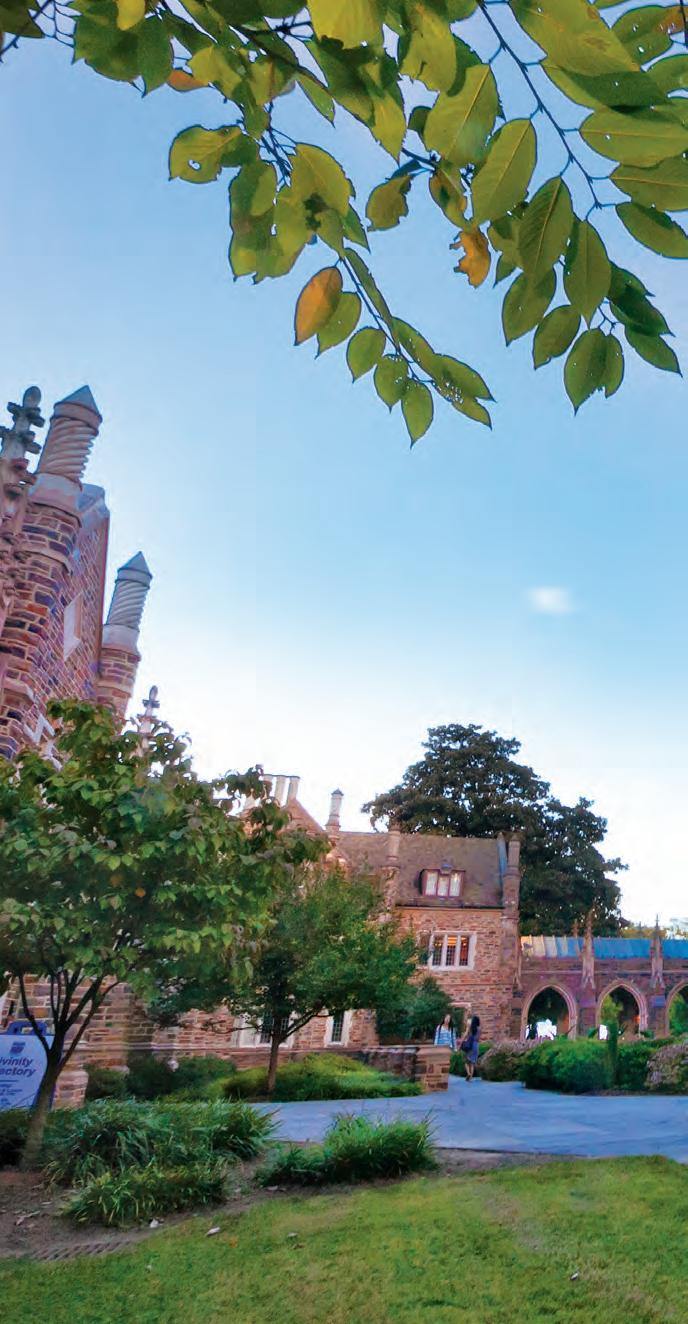






A SUPPORTIVE AND WELCOMING COMMUNITY, PASSIONATE ABOUT REAL-WORLD LEARNING, ACADEMIC RIGOR, AND COLLABORATION.

Law School isn’t about earning a degree but learning a new way of thinking. At Duke Law, you’ll develop these skills through being challenged and mentored by the best faculty in the world in a supportive and close-knit community. You’ll form the network that will be with you throughout your career, as you decide from a myriad of possibilities where your Duke degree will take you.”


What makes Duke Law different from other law schools?
Is it the world-class faculty who love to teach?
The close-knit student body who lift up and support one another? The advisors and counselors whose individualized attention will help you chart your own course?
The global network of graduates ready to help launch your legal career? It’s all of the above, and more. It’s all here.
Duke Law School’s faculty are an integral part of a culture that is both intellectually rigorous and exceptionally supportive.
At Duke, your professors are world-renowned legal scholars, innovative interdisciplinary researchers, advisors to governments and NGOs, and authors of amicus briefs read by Supreme Court justices. But they are also dedicated and energetic teachers who care deeply about helping you master doctrine and theory and guiding your development as a legal practitioner.
You’ll find professors who are accessible, lingering long after class to answer questions and stopping in the hallways to ask how you are. And some will become lifelong friends and colleagues, welcoming you and your classmates into their homes for dinner, inviting you to collaborate with them on research and writing, and joining with you in extracurricular activities and projects to help the community.


“The community at Duke Law is so welcoming. I am not sure I have seen a more tight-knit, collegial environment than here at Duke. From the faculty down, everyone is so friendly, engaging, and excited to help one another.”
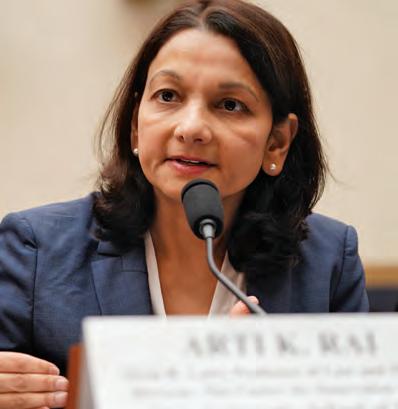
5.9:1
Student-Faculty Ratio
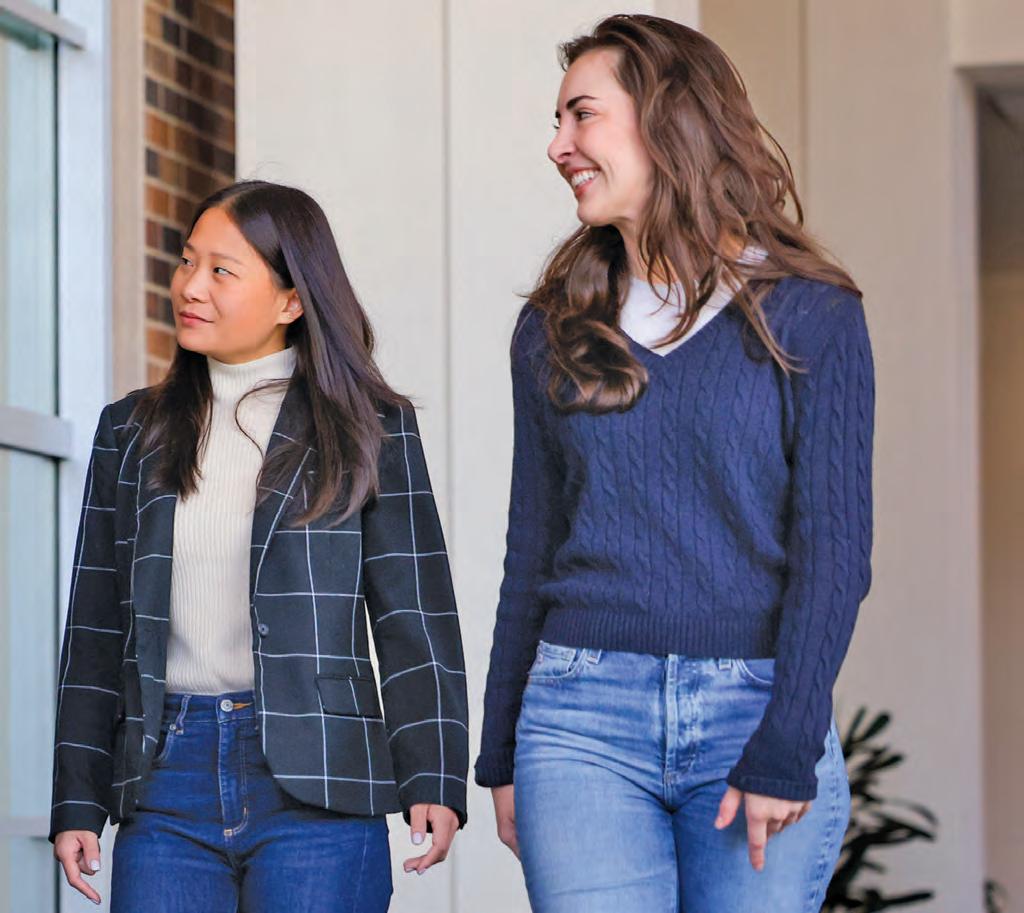
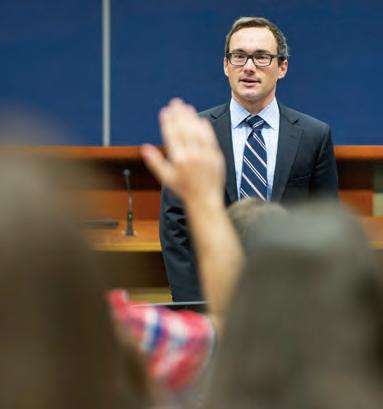
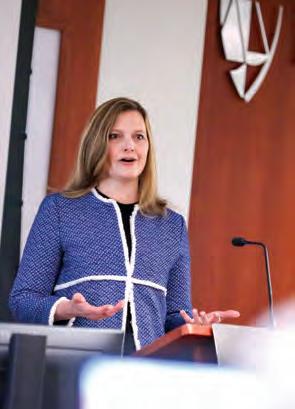
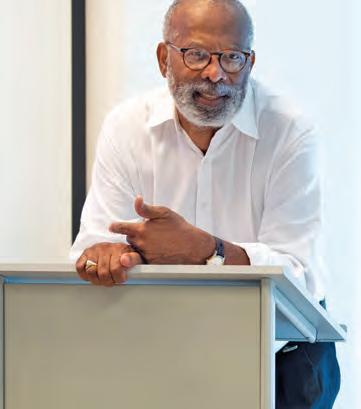

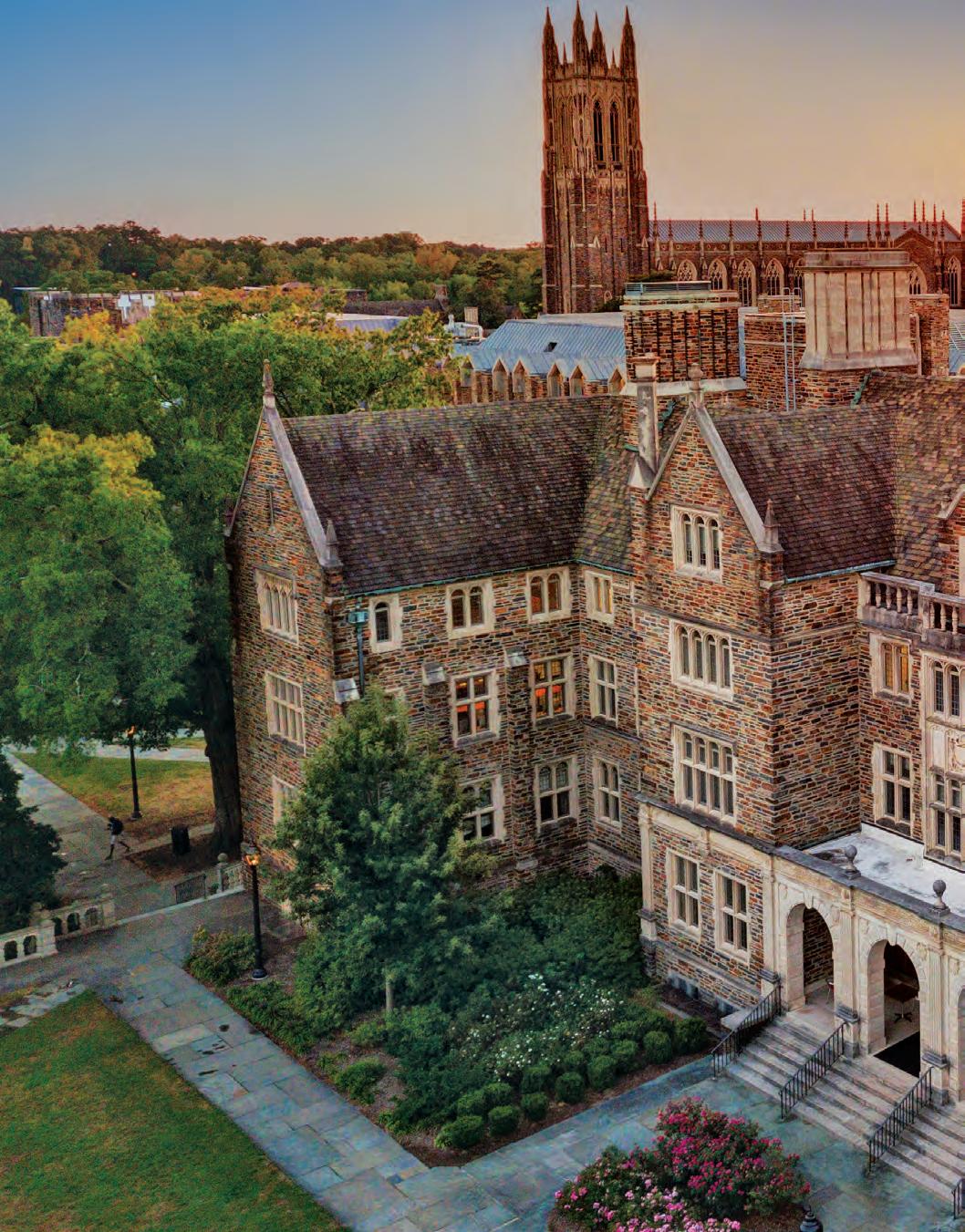
“When I was applying to law schools, I always knew that I wanted to end up somewhere with a tight-knit, collaborative, and engaged community. I eventually decided to attend Duke Law because it offered exactly that, with opportunities to work closely with faculty and students outside the classroom to effect change in the wider world.”
MATTHEW PHILLIPS ’20 was part of a Bass Connections team led by Duke Law faculty members that studied how cyber-attacks and data breaches harm consumers. He collaborated with graduate students from Duke’s Pratt School of Engineering. He is now an associate with Simpson Thacher.
When you enroll at Duke Law, you become part of one of the world’s leading research universities, known for its commitment to collaboration on campus and innovative interdisciplinary programs. Duke has more graduate students than undergraduates, and the Law School is steps away from Duke’s prestigious schools of business, public policy, engineering, the environment, and medicine, enabling you to take cross-listed courses, attend lectures and panel discussions, and engage in extracurricular academic, professional, and social activities.
Programs like BASS CONNECTIONS offer the opportunity to learn alongside students in other disciplines — who might be your future colleagues or clients — and collaborate on immersive research projects, many for academic credit. Students’ work has resulted in policy recommendations, journal articles, datasets to inform future research, and more. They have collaborated with policymakers on Medicaid reform, developed cybersecurity guidelines to protect personal data, and produced a documentary film on peacemaking in post-conflict zones.
Additionally, a number of Duke Law students take their commitment to interdisciplinary work further by signing up for a DUAL DEGREE, pursuing two world-class degrees at once and preparing for a career at the intersection of law and another discipline. Many choose one of the Law School’s signature programs: the JD/LLM in International and Comparative Law, JD/LLM in Law and Entrepreneurship, or the JD/MA in Applied Ethics and Policy.

Through Duke’s
CENTER FOR HEALTH POLICY, Bennett Wright ’20 worked with Duke Law Professor Arti Rai, an internationally recognized expert in innovation policy and intellectual property, administrative, and health law, to craft and implement research into trade secrecy and accountability in artificial intelligenceenabled health care. Along with Rai, he also looked at how recent Supreme Court decisions might be affecting investment in the biotech sphere. And he collaborated with other Margolis Scholars in research both on new privacy regulations pertaining to health care and new U.S. Food and Drug Administration rules.
“Those are regulations that the businesses I plan to help in my career are going to encounter,” said Wright, who went on to clerk on the U.S. Court of Appeals for the Federal Circuit, and now counsels companies and individuals in all phases of civil litigation. “These projects have been very helpful to me in terms of getting a deeper understanding of the field.”
Whether you aspire to become a public interest lawyer, incorporate pro bono work into your practice, or serve your community in other ways, you will find the resources at Duke Law to reach your goals. The value of service is core to the profession and central to student experience.
Through the Office of Public Interest and Pro Bono at Duke Law, students lead projects in areas such as criminal law, environmental law, and civil rights, that provide much-needed legal services to clients who couldn’t otherwise afford them. Many students graduate with highly competitive fellowships and job placements in government agencies, nonprofits, and organizations serving indigent clients.
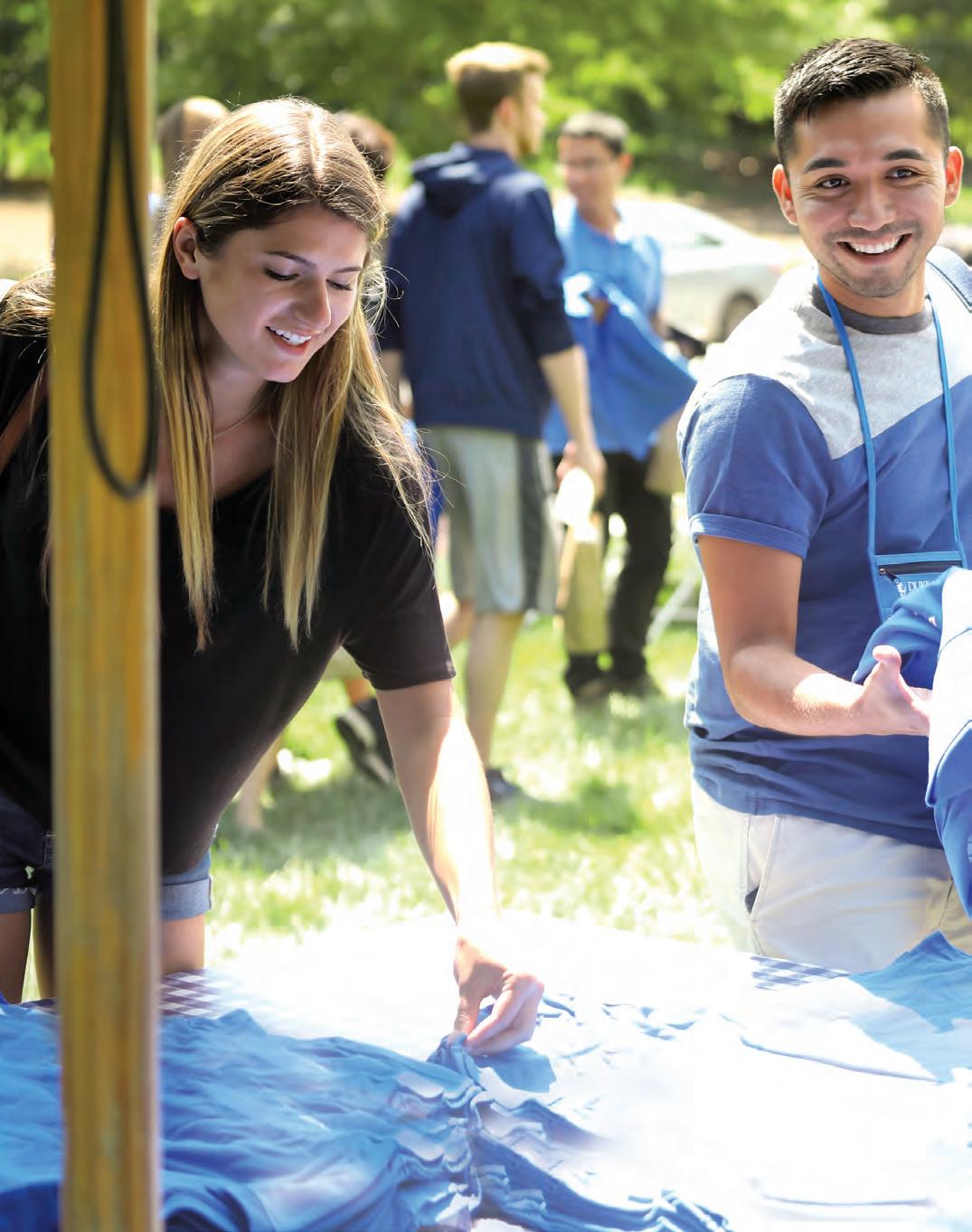
CERTIFICATE IN PUBLIC INTEREST AND PUBLIC SERVICE LAW
Duke Law’s Certificate in Public Interest and Public Service Law gives students who are committed to working in public service a head start on their careers.
Certificate students complete curricular requirements and are assigned faculty mentors to assist in selecting academic, clinical, and experiential courses that will help them develop competencies necessary toward achieving their professional aspirations. Students in the program benefit from a community of peers, faculty, administrators, and Duke Law alumni committed to supporting them as they pursue careers in public interest and public service.
Duke Law is committed to providing students with experiential learning opportunities that not only contribute to your professional development, but also stress the value of service.
These student-led groups give you the opportunity to engage with the local Durham community and beyond:
• Coalition Against Gendered Violence
• Duke Decarceration Project
• Duke Immigrant & Refugee Project
• Duke Fair Chance Project
• Duke Street Law
• Guardian Ad Litem
• Health Care Planning Project
• Human Rights Pro Bono Program
• Innocence Project
• Lawyer on the Line
• Lyme Disease Advocacy Project
• Veterans Assistance Project


“
Working with clients helps to bring a sense of perspective to everything that we’re doing. I find that it grounds me in reality. It helps me to remember what this is really all about and what the legal profession can do, and how it can serve people.”
At Duke Law, we believe in learning by doing, and there’s no better way to hone your skills and train alongside real clients than by taking a clinic.
Students in our 12 clinics are directly involved in all aspects of their cases, from interviewing clients and witnesses and conducting investigations to writing briefs and presenting arguments in court. And best of all, your work will have a real and immediate impact, whether it’s securing housing for a client facing eviction or helping entrepreneurs navigate complex transactional issues to launch their start-up.

On June 25, 2025, Benjamin Cole, 47, walked free from prison after serving nearly three decades for a murder he always maintained he didn’t commit.
Duke Law’s Wrongful Conviction Clinic took on Cole’s case in 2021. Duke Law students and faculty uncovered that police had concealed evidence supporting his alibi and that additional crucial information was never shared with the defense or jury.
“We felt that no one would listen to us when reaching out for help in Benjamin’s case,” said Britney Butler, Cole’s sister.
“We are so grateful that we were finally heard by the Wrongful Convictions Clinic at Duke Law, and we appreciate every student that did anything, big or small, to help bring Benjamin home.”
The clinic has now helped secure the release of more than a dozen clients since 2008.
Benjamin Cole is embraced by his family following his release.
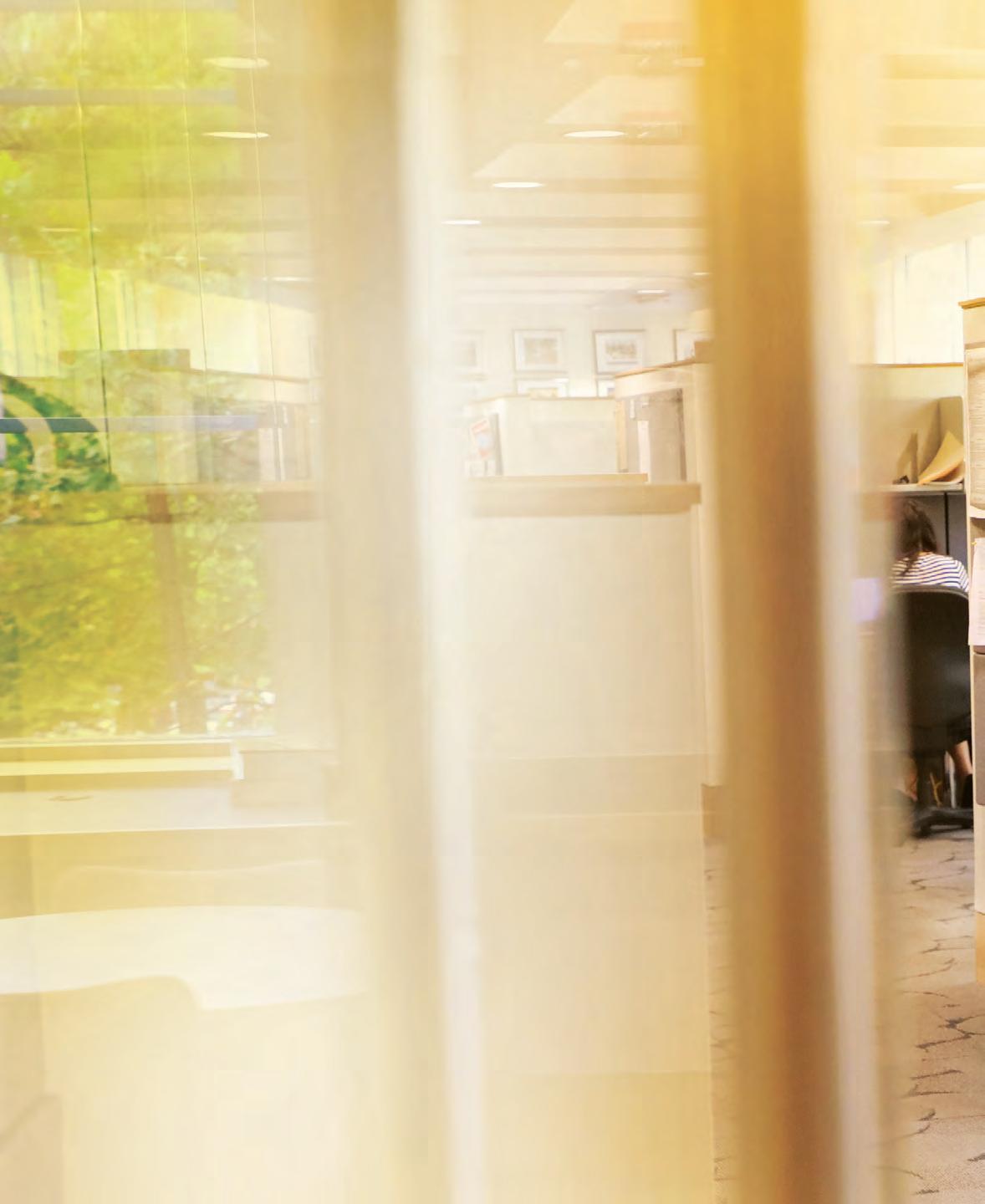
CLINICS
• Appellate Litigation
• Children’s Law
• Civil Justice
• Community Enterprise
• Criminal Defense
• Environmental Law & Policy
• First Amendment
• Health Justice
• Immigrant Rights
• International Human Rights
• Start-Up Ventures
• Wrongful Convictions
75+%
of Students Participate in a Clinic or Externship


“Many people early in their legal careers and throughout law school don’t have the opportunity to work one-on-one with clients. In the Civil Justice Clinic, I got to work on cases at all different stages of the litigation process. I helped tenants who were just exploring claims write letters to their landlords asking for relief before bringing a suit. I got to participate in mediations and actually lead mediations with one of our clients who had been involved in litigation for some time and helped negotiate settlements between the parties.”
BRANDON BISHOP ’25 worked directly with clients on tenant advocacy issues in the Civil Justice Clinic.

“The Appellate Litigation Clinic is pretty special in that it’s yearlong and you have the opportunity to see a case all the way through — from your opening brief to the response and reply and then oral argument at the end. I expected to learn a lot. But I think I was surprised by just how meaningful it became to me and just how much it mattered to my law school experience and to the lawyer that I will become.”
ZOE TERNER ’25 worked in the Appellate Litigation Clinic on both state and federal appeals.
Duke Law’s Legal Analysis, Research, and Writing Program demonstrates a strong commitment to writing excellence through a comprehensive first-year curriculum that integrates legal analysis, writing, and research skills.
The program is distinguished by our dedicated writing faculty who have substantial legal practice experience and have made teaching their primary professional commitment. Our research faculty includes professional reference librarians and lawyers.
Duke is one of the first top-tier law schools to employ writing faculty whose first dedication is to the teaching of writing. Our faculty will work closely with you on assignments ranging from office memos to appellate briefs, helping you master sophisticated research skills, complex legal analysis, and the specialized requirements of legal prose essential for producing top-quality legal writing. This program experience will give you a substantial advantage as you enter the legal profession.
Through upper-level advanced legal writing courses, you can further refine your legal writing skills with specialized, small-seminar instruction from our writing faculty. These courses focus on specific practice areas and writing contexts, giving you hands-on experience with diverse legal documents including contract drafting, judicial opinions, federal litigation briefs, client letters, and communications for non-legal audiences. You’ll receive substantial individual feedback on your written work while developing the sophisticated writing and analytical skills needed for modern legal practice.


I couldn’t be prouder of the progress I have made. I truly feel that thanks to Professor Jeremy Mullem, I have become a much better writer. As someone with a STEM undergrad degree who never really took any upper-level writing classes in college, taking this class has given me so much confidence. I think this is the class that has really helped me to ‘think like a lawyer.’” “
WRITING & COLLABORATING
Duke Law is home to seven studentedited scholarly journals, each with a strong reputation for excellence in its field. These journals offer students an opportunity to hone their writing and editing skills, work collaboratively with classmates, and explore subjects that are personally and professionally interesting.
DUKE LAW JOURNALS (and founding years)
• Law & Contemporary Problems 1933
• Duke Law Journal 1951
• Alaska Law Review 1983
• Duke Journal of Comparative & International Law 1990
• Duke Environmental Law & Policy Forum 1991
• Duke Law & Technology Review 2000
• Duke Journal of Constitutional Law & Public Policy 2006


“I just started work and so far, have realized that the program was teaching us practical skills the whole year. I’m working on an appellate brief and have to comb through circuit rules (just like we had to) and have been breaking down my larger assignments into micro deadlines/schedules (like our professors did). This is something that’s come up in conversation many times with my 1L friends — all of us are at our various jobs well-prepared and our supervisors can tell. I knew our professor was doing a great job teaching us, but as I start work, I realize that wow, they were REALLY doing a great job!”
VIRALI PATEL ’27 has participated in the Coalition Against Gendered Violence, If/ When/How: Lawyering for Reproductive Justice, Fair Chance Project, Street Law, Women of Color Collective, and the South Asian Law Students Association; recently, she worked as a summer associate at Faegre Drinker in Washington, D.C.
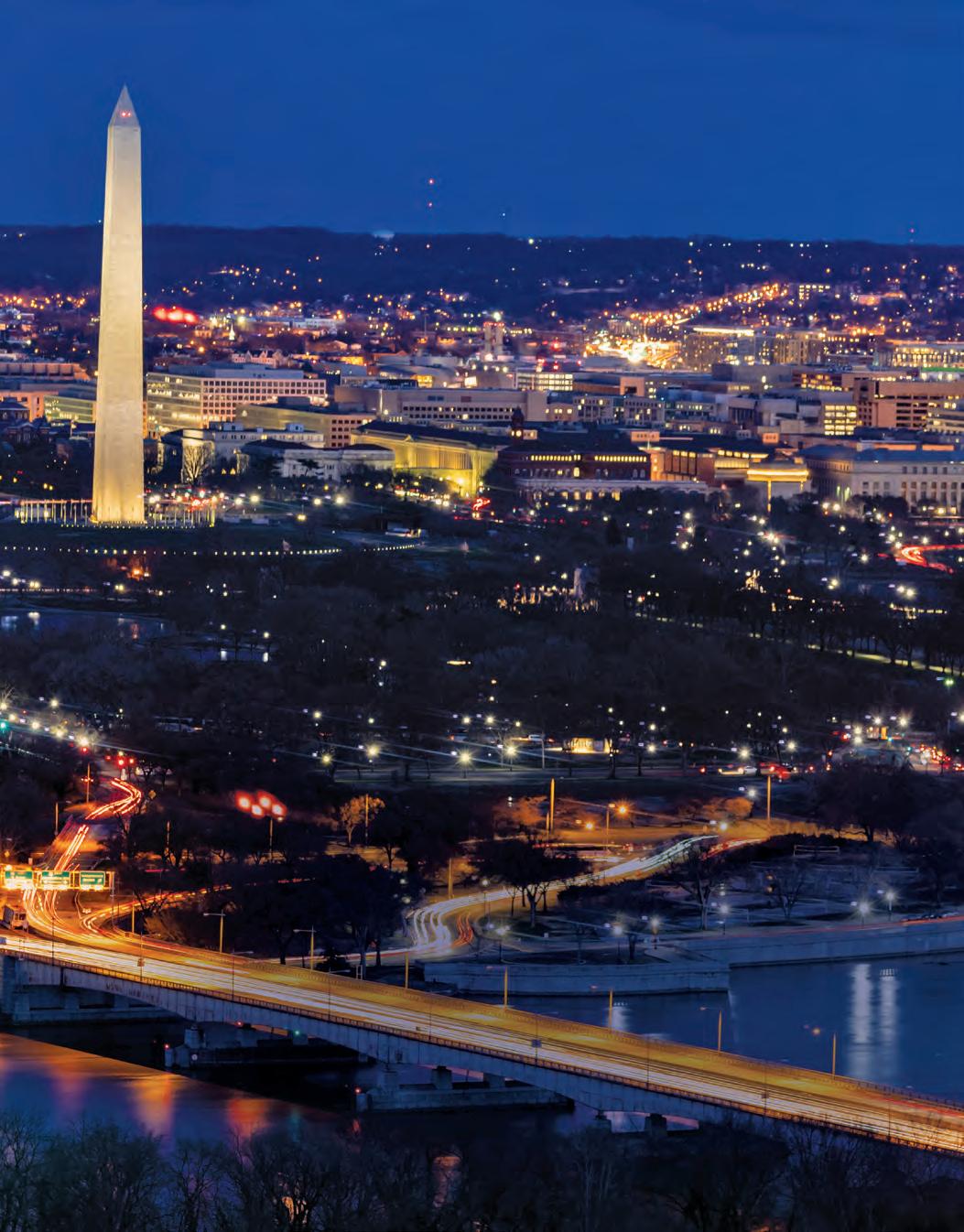
Duke Law students have numerous opportunities to apply the skills they’re learning in real-world settings. Through the externship program, students receive academic credit while gaining valuable experience under the supervision of a licensed attorney in a governmental or nonprofit setting.
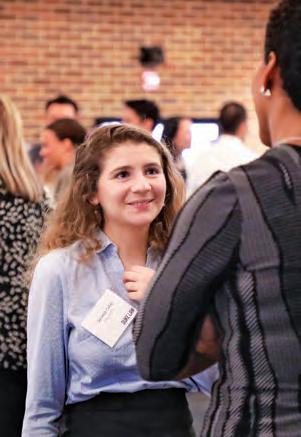
The Duke in D.C. Program combines a semester-long externship placement in Washington, D.C., with a weekly seminar course — and a substantial research paper — taught by Duke Law faculty. This integrated externship model allows students to engage in hands-on practice and develop an invaluable network while tackling rigorous coursework with law and policy experts.
RECENT DUKE IN D.C. EXTERNSHIP PLACEMENTS
• Federal Trade Commission
• Public Defender Service for the District of Columbia
• U.S. Department of Justice
• U.S. Department of State
• U.S. House Committee on Oversight and Reform
• U.S. Senate Judiciary Committee
• World Bank

LOCAL EXTERNSHIP NETWORK
Students have the opportunity to earn academic credit and build connections in Durham and the Triangle area through the Law School’s Externship Program by working under the guidance of attorneys in local government agencies, nonprofit organizations, technology firms, and more.
RECENT LOCAL EXTERNSHIP PLACEMENTS
• ACLU Capital Punishment Project
• Duke Office for Translation and Commercialization
• Durham Public Defender’s Office
• JusticeMatters
• N.C. Board of Elections
• N.C. Solicitor General
• Southern Environmental Law Center
• U.S. Attorney’s Office, Eastern District of N.C.

“The semester I spent doing Duke in D.C. was my favorite semester of law school. I loved having the real world as my classroom. Through my externship and the speakers invited to class, I got to meet lawyers with wildly varying careers but who were all passionate and dedicated to public service.”
ALEX TATE ’20 worked with the U.S. House Oversight Committee’s Subcommittee on Economic and Consumer Policy as part of the Duke in D.C. program. She is now an associate at HWG LLP.

“The best part of the work was the client interaction. It is an amazing — but simultaneously terrifying — feeling to realize that a person in a difficult situation is willing to place their trust in a law student who has not yet completed two full years of law school. One client even told me that that particular day was ‘the best day of her life’ because I was able to get her case dismissed without leave.”
CHRIS MEADOWS ’21 completed an externship with the Durham Public Defender’s Office. He is now an attorney for the Federal Defender Services for the Eastern District of Tennessee.

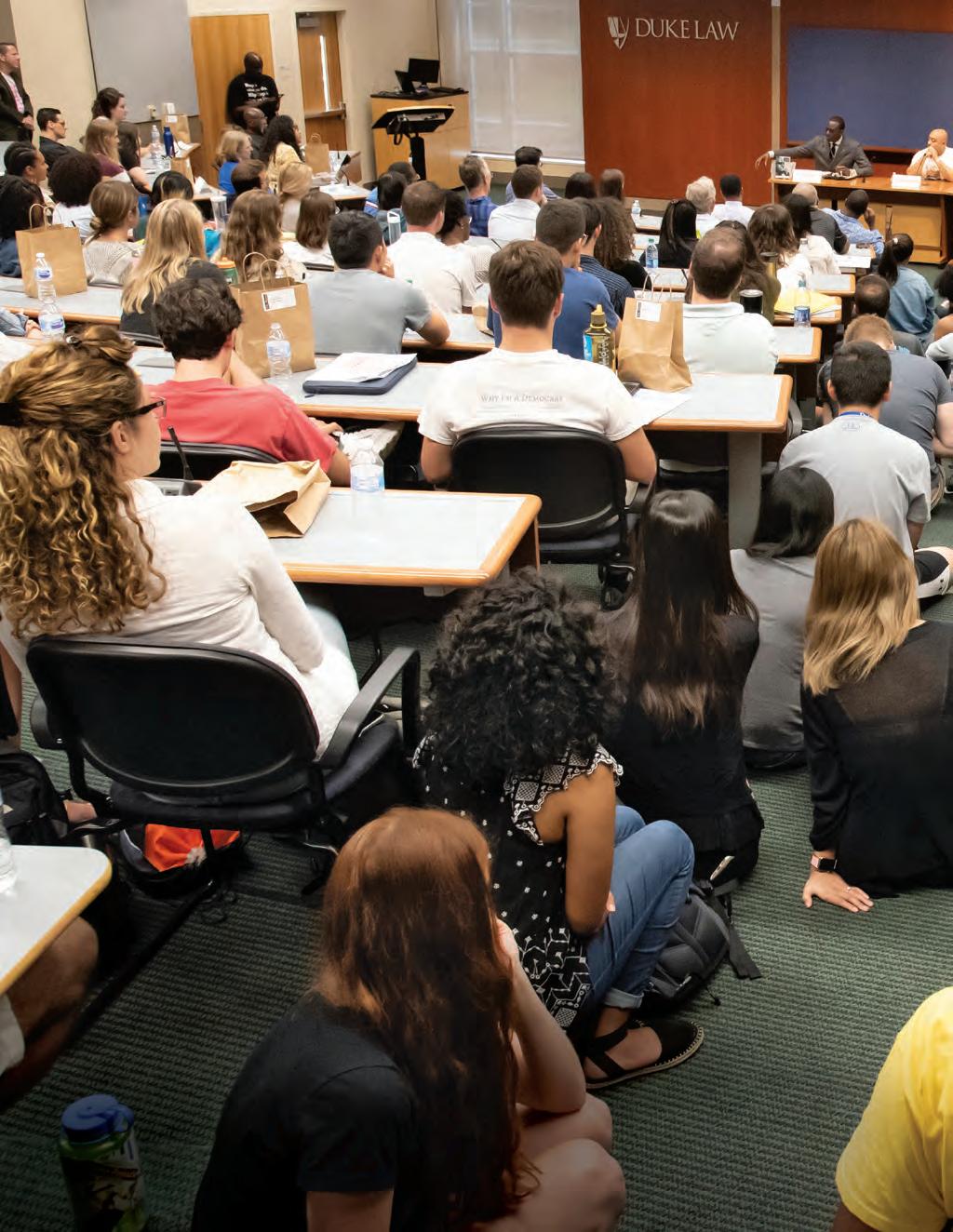
“
Researching for policing reform legislation during this eventful and often heartbreaking summer was a particularly powerful experience. I hope that our work will be part of the collective effort changing the set custom in policing legislation. It also gave me new appreciation on lawyers’ roles in pushing for positive social changes.”
EMMA LI ’22 was an intern with the Policing Reform Project in the Wilson Center for Science and Justice, which tracks new legislation introduced at the federal and state levels following the killing of George Floyd in May 2020. The collection serves as a resource for the public, policy-makers, lawmakers, and researchers. She is now an associate attorney at Gibson, Dunn & Crutcher.
Students fill every available space to listen to Yusef Salaam and Raymond Santana, two of the Exonerated Five, speak about their experience in an lunchtime event hosted by the Wilson Center for Science and Justice and moderated by Professor Brandon Garrett.
Duke Law has 17 centers, institutes, and programs in which faculty, working alongside student research assistants, engage in cutting-edge research and education on a range of subjects of critical importance to the law, public policy, and society. With focus areas ranging from national security to sports law, the public domain to international law, the centers are a constant source of activity at the Law School, hosting hundreds of events each year, from lunchtime speakers to multi-day conferences, that bring some of the top legal minds to engage with Duke Law students.
The WILSON CENTER FOR SCIENCE AND JUSTICE brings together faculty and students from across multiple disciplines to apply scientific research to criminal justice reform. Led by Professor Brandon Garrett, the center partners with community stakeholders and policymakers to turn research into effective and practical policy change. Recent projects have focused on studying and reforming plea bargaining, bail reform and other pretrial policies, and improving police response to behavioral health crises.
The DUKE CENTER ON LAW & TECHNOLOGY helps students prepare for the increasing prominence of technology in the legal profession by engaging with entrepreneurs and ensuring graduates understand rapidly evolving technologies like blockchain and artificial intelligence, and critical issues such as data privacy. Through programs like the Duke Law Tech Lab, the center collaborates with early-stage startups to change the way legal services are delivered.
The CENTER ON LAW, ETHICS AND NATIONAL SECURITY promotes education and discussion of the complex and diverse issues involved in national security. Led by Professor Charles Dunlap, a retired major general and the former deputy judge advocate general of the U.S. Air Force, the center’s annual LENS conference draws experts in the field to speak on issues such as cyberwar, the legal issues of humanitarian operations, and the weaponization of social media.
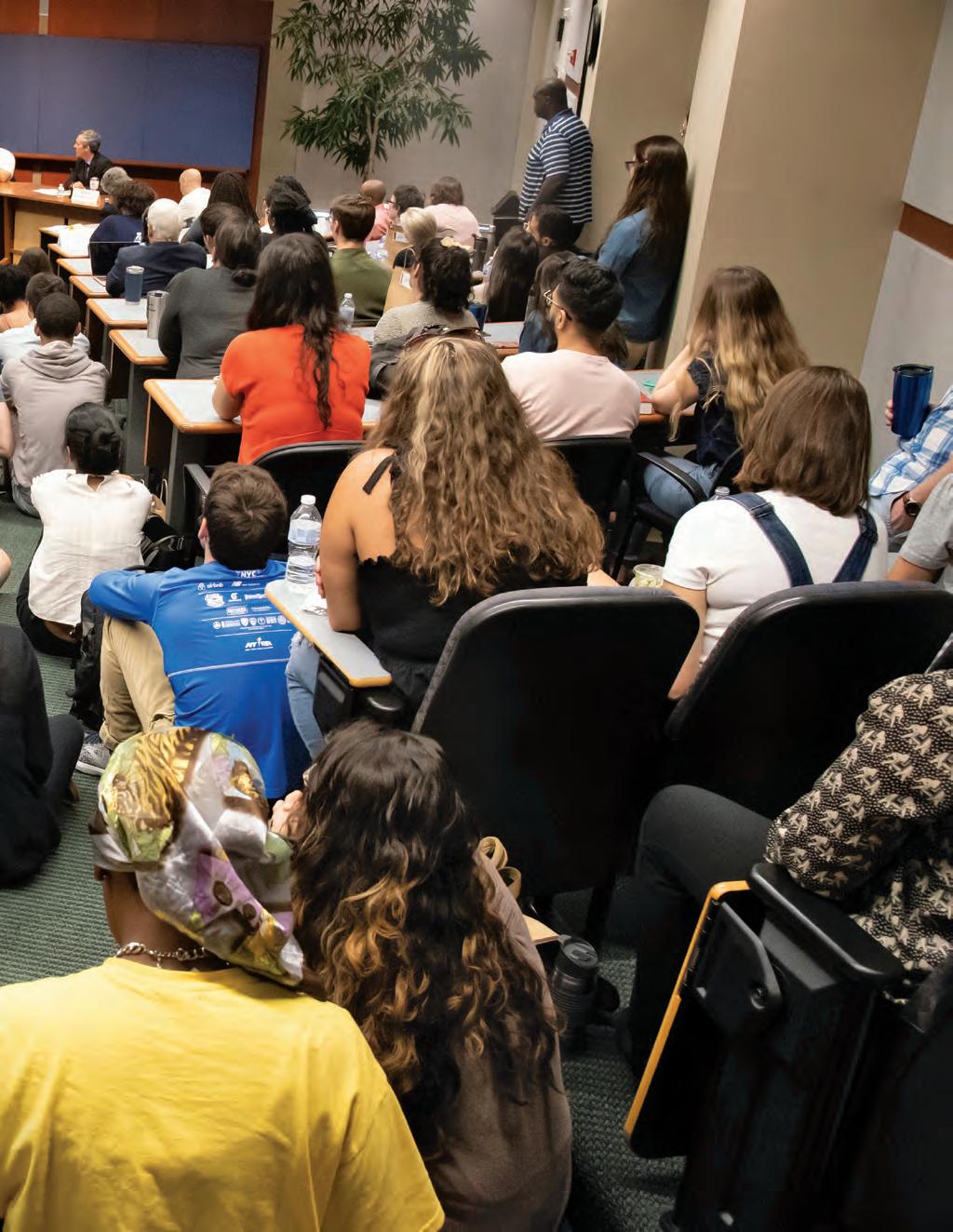
• Bolch Judicial Institute
• Center for Criminal Justice and Professional Responsibility
• Center for Firearms Law
• Center for Innovation Policy
• Center for Institutional and Organizational Performance
• Center for International & Comparative Law
• Center for Law, Economics and Public Policy
• Center on Law, Ethics and National Security
• Center on Law, Race and Policy
• Center for Sports Law and Policy
• Center for the Study of the Public Domain
• Duke Center on Law & Technology
• Duke Center on Risk
• Duke Initiative for Science & Society
• Horvitz Program in Constitutional & Public Law
• Program on Negotiation & Dispute Resolution
• Wilson Center for Science and Justice
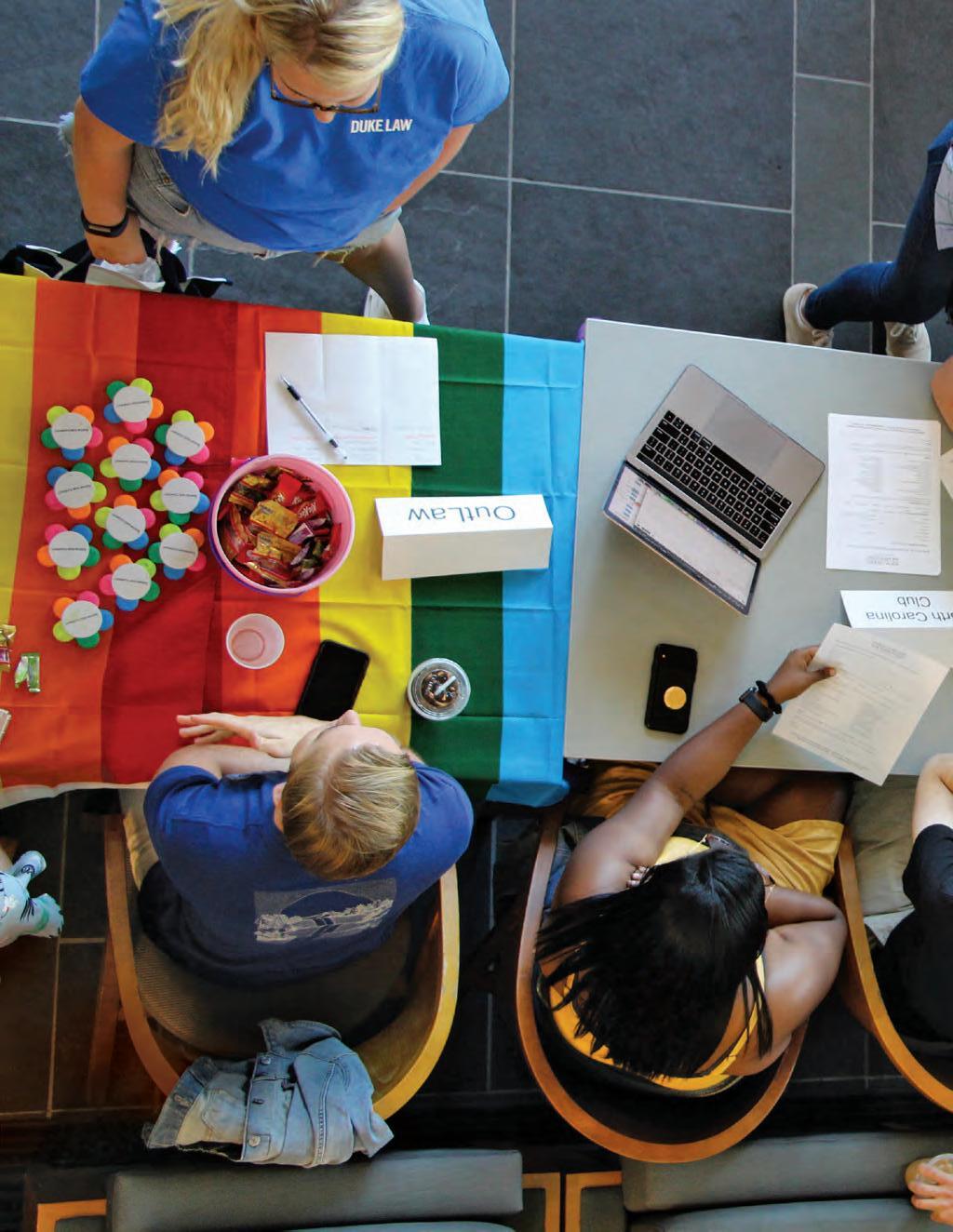
Leadership is a critical component of a Duke Law education and a fully engaged life in the law.
Your 1L year begins with LEAD Week (Lawyer Education and Development) with the BLUEPRINT TO LEAD at its core. It outlines the six values we think are critical for leadership and we incorporate these ideals in our curriculum, programs, and interactions with each other. By practicing these values, nurturing creativity, and giving you the right tools, we’ll help set you on a path to extraordinary achievement.
Our student-led organizations are the foundation of the Law School’s vibrant community. From public interest work to intramural sports, you are likely to find classmates who share your passions.
• American Constitution Society
• Antitrust and Competition Law Society
• Asian Pacific American Law Students Association
• Black Student Law Association
• Business Law Society
• Christian Legal Society
• Coalition Against Gendered Violence
• Duke Bar Association
• Duke Decarceration Project
• Duke Health Law Society
• Duke Immigrant and Refugee Project
• Duke Labor and Worker’s Rights Alliance
• Duke Law ACLU
• Duke Law and Technology Society
• Duke Law California Club
• Duke Law Federalist Society
• Duke Law First Class
• Duke Law Florida Club
• Duke Law Lifting Club
• Duke Law Moot Court Board
• Duke Law Music Association
• Duke Law Older, Wiser Law Students
• Duke Law Run Club
• Duke Law Soccer Club
• Duke Law Student Animal Legal Defense Fund Chapter
• Duke Law Texas Club
• Duke Law Viticultural Society
• Environmental Law Society

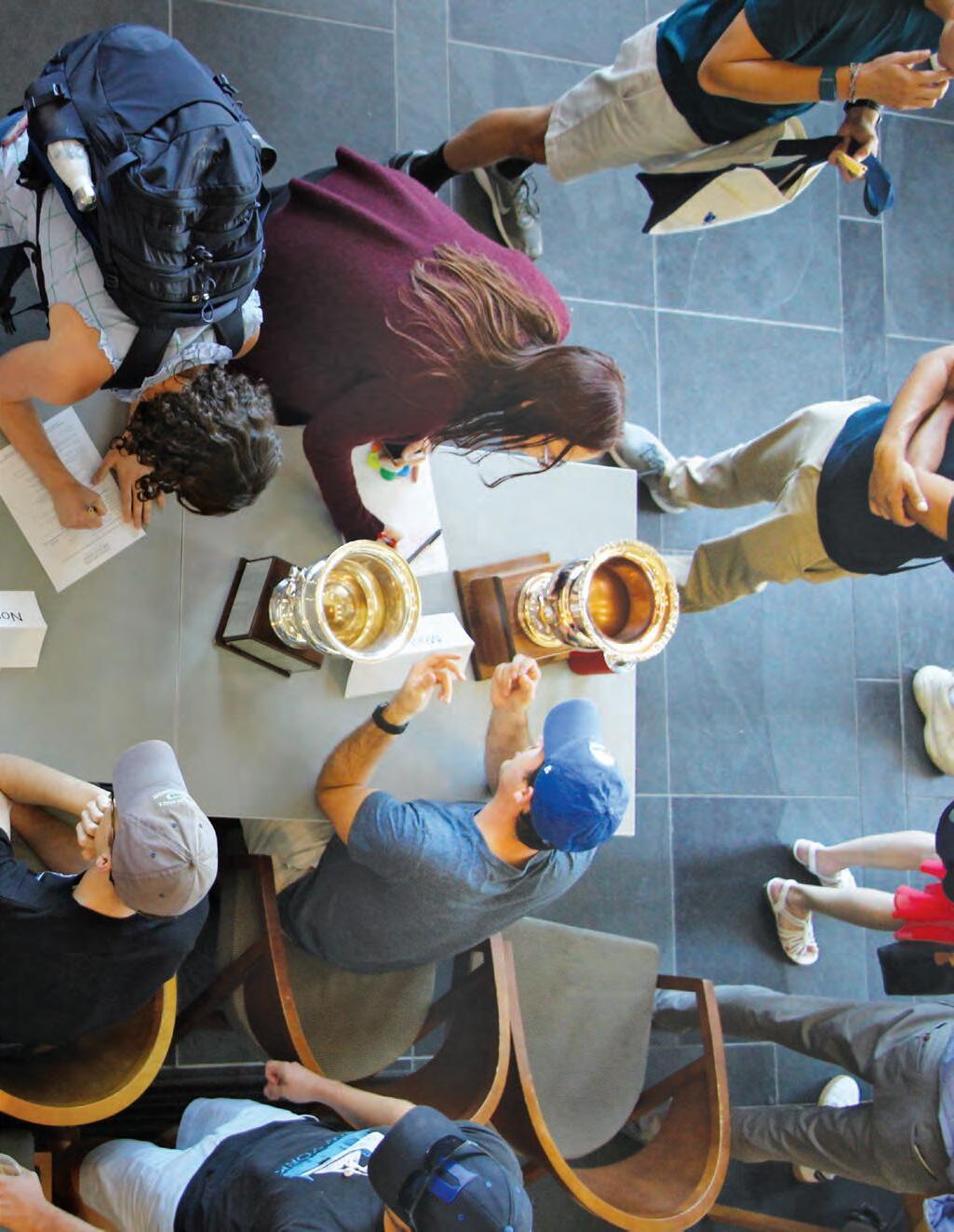
• Fair Chance Project
• Government and Public Interest Association
• Human Rights Pro Bono Project
• If/When/How: Lawyering for Reproductive Justice
• Innocence Project
• Intellectual Property Law Society
• International Law Society
• J. Reuben Clark Law Society
• Jewish Law Students Association
• Latin American Law Student Association
• Lawyer on the Line
• Middle Eastern and North African Law Students Association
• Mock Trial Board
• Muslim Law Students Association
• National Lawyers Guild
• National Security Law Society
• Native American Law Students Association
• North Carolina Club
• OutLaw
• South Asian Law Students Association
• Sports & Entertainment Law Society
• Street Law
• The Chicago Club
• Transactional Law Society
• Tricky Dick
• Womxn of Color Collective
• Women Law Students Association
“I’ve lived and studied in several U.S. states, Jamaica, and Japan, but Duke’s student culture was unlike any I’ve experienced. Duke Law is a smattering of contradictions. It is an academically intense place with a cordial and relaxed social scene. Students are competitive but also generally polite, supportive, and humble.”
ANDREW LINDSAY ’21 was president of the American Constitution Society, co-president of the Duke Law & Technology Society, chief of staff of the Black Law Students Association, and editor-in-chief of the Duke Law & Technology Review. He is currently an associate at Cleary Gottlieb Steen & Hamilton in New York.
A Duke Law education is a gateway to an exciting, rewarding, and fulfilling professional life, and it begins the day you arrive on our campus. We make it our mission to support the career aspirations and professional development of each and every student.
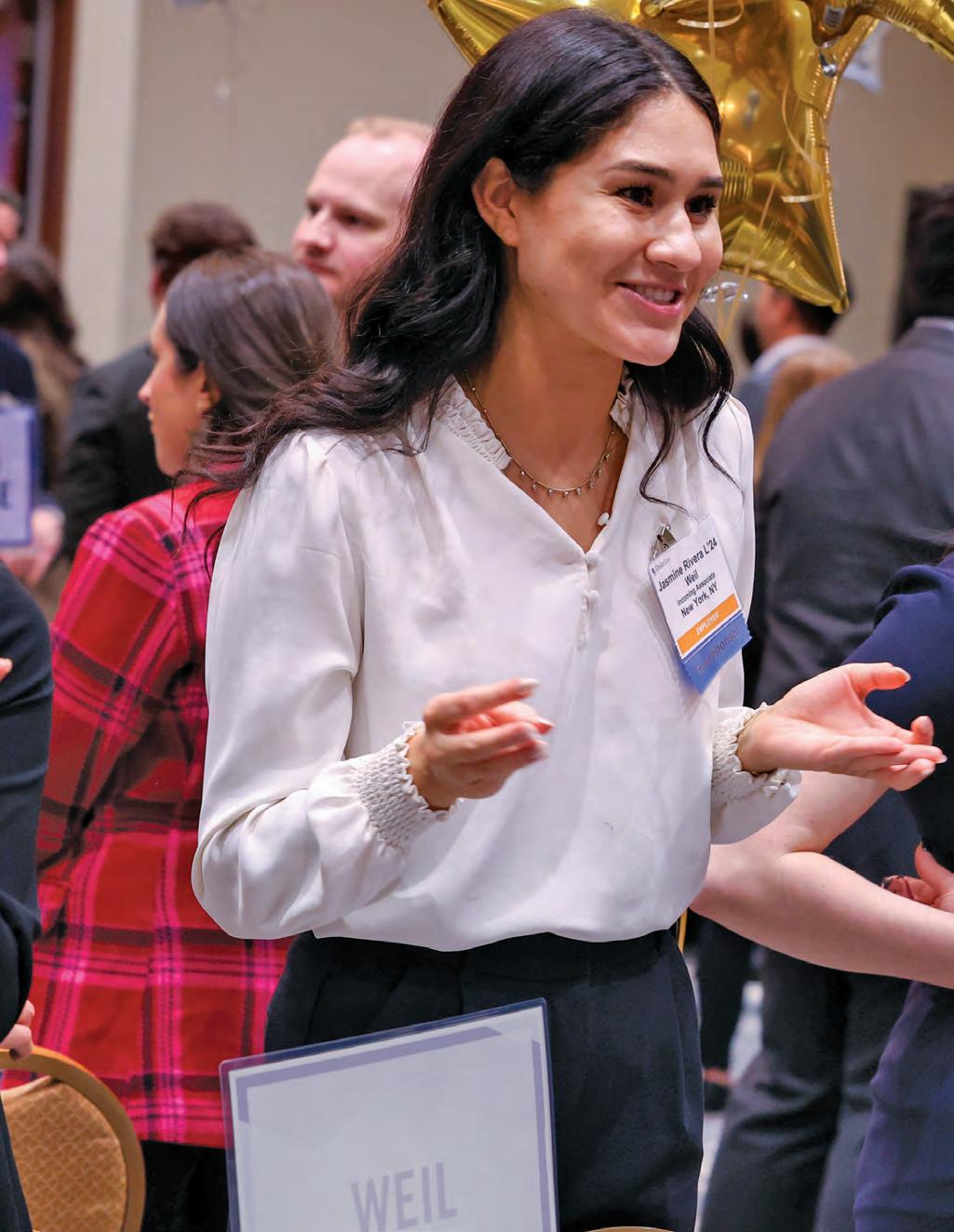
The result: We regularly rank at the very top of all law schools for student outcomes. The employment rate for Duke Law’s class of 2024 is 99% — the highest of all 195 ABA-accredited law schools. Our graduates are recognized by employers as exceptionally well-prepared for their first legal jobs.
Whatever your desired path — a law firm, government agency, nonprofit, or business, a big city, regional center, or international destination — you’ll receive individualized attention and career counseling focused on those aspirations.
In your first year, you’ll meet regularly with a dedicated counselor, who will help you learn about the job market, develop your unique career plan, and connect with alumni and others who can advise you on making it a reality. By your second year, you’ll be ready to impress the hundreds of employers who visit Duke Law to recruit our students and secure the position that’s right for you. In your third year, you’ll refine your plans and augment your knowledge and skills to ensure the best possible launch of your legal career. Just don’t forget us when you graduate!

MOST POPULAR EMPLOYMENT
LOCATIONS 2022-2025
• New York
• Washington, D.C.
• California
• North Carolina
• Texas
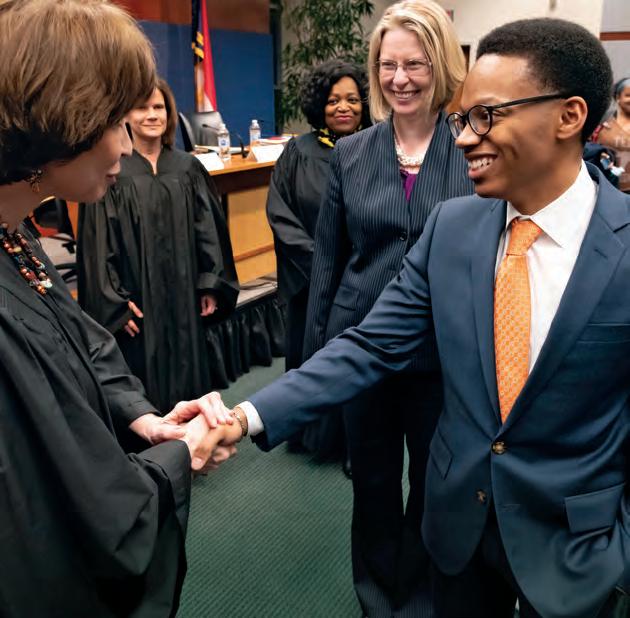
Donovan Stone ’20 won the 2020 Dean’s Cup moot court competition, arguing his case to a panel of three federal judges. After graduation, he clerked on the U.S. District Court for the Northern District of Alabama, the U.S. Court of Appeals for the Second Circuit, and the U.S. Supreme Court.
Duke has one of the best records of placement in clerkships of any law school.
About 20% of every graduating class will clerk for a state or federal judge after graduation or early in their legal career, and since 2010, 13 graduates have gone on to clerkships on the U.S. Supreme Court. Our dedicated clerkship team and faculty clerkship committee work tirelessly to help students prepare their applications and get ready for interviews, and students have unique opportunities to meet and learn from sitting judges through our Bolch Judicial Institute and judicial studies master’s program.

37
Members of the Duke Law class of 2024 were clerking 10 months after graduation
84
Duke Law graduates clerked in state and federal courts during the 2024-2025 term

Wherever you go, our alumni are leaders in law firms, general counsels for major corporations, attorneys for government agencies, heads of nonprofits, judges, entrepreneurs, elected officials, and academics. In fact, it’s difficult to find a major city, industry, or legal specialty where you won’t encounter a loyal Duke Law graduate, and they love to give back. You’ll see them on campus nearly every day — speaking to, mentoring, and recruiting our students. They will share your experience of Duke’s collegial and intellectually rigorous culture, and will be eager to help you chart your future course.
Duke Law School’s network of 14,000 alumni is distinctly global. Our highest concentrations of graduates work in New York and Washington, D.C., but we also have large and thriving alumni communities in Los Angeles, Chicago, Miami, Dallas, San Francisco, and Silicon Valley, as well as London, Paris, Brussels, Tokyo, Seoul, Beijing, and Buenos Aires.


“The opportunity to get a clerkship was an important factor in my law school decision. I’ll be spending my first year after graduation clerking on the U.S. District Court for the Southern District of Florida. It wouldn’t have been possible without the invaluable support and guidance of my two clerkship advisors, Professor Joseph Blocher and Professor Sara Beale, who were there every step of the way.”
HAYLEY LAWRENCE JD/LLM ’21 is a litigation associate at Gibson, Dunn & Crutcher in Washington, D.C. and an adjunct professor at George Washington University Law School. She served as editor-in-chief of the Duke Journal of Constitutional Law and Public Policy. She is now a litigator at Gibson, Dunn & Crutcher and an adjunct professor at the George Washington University Law School.
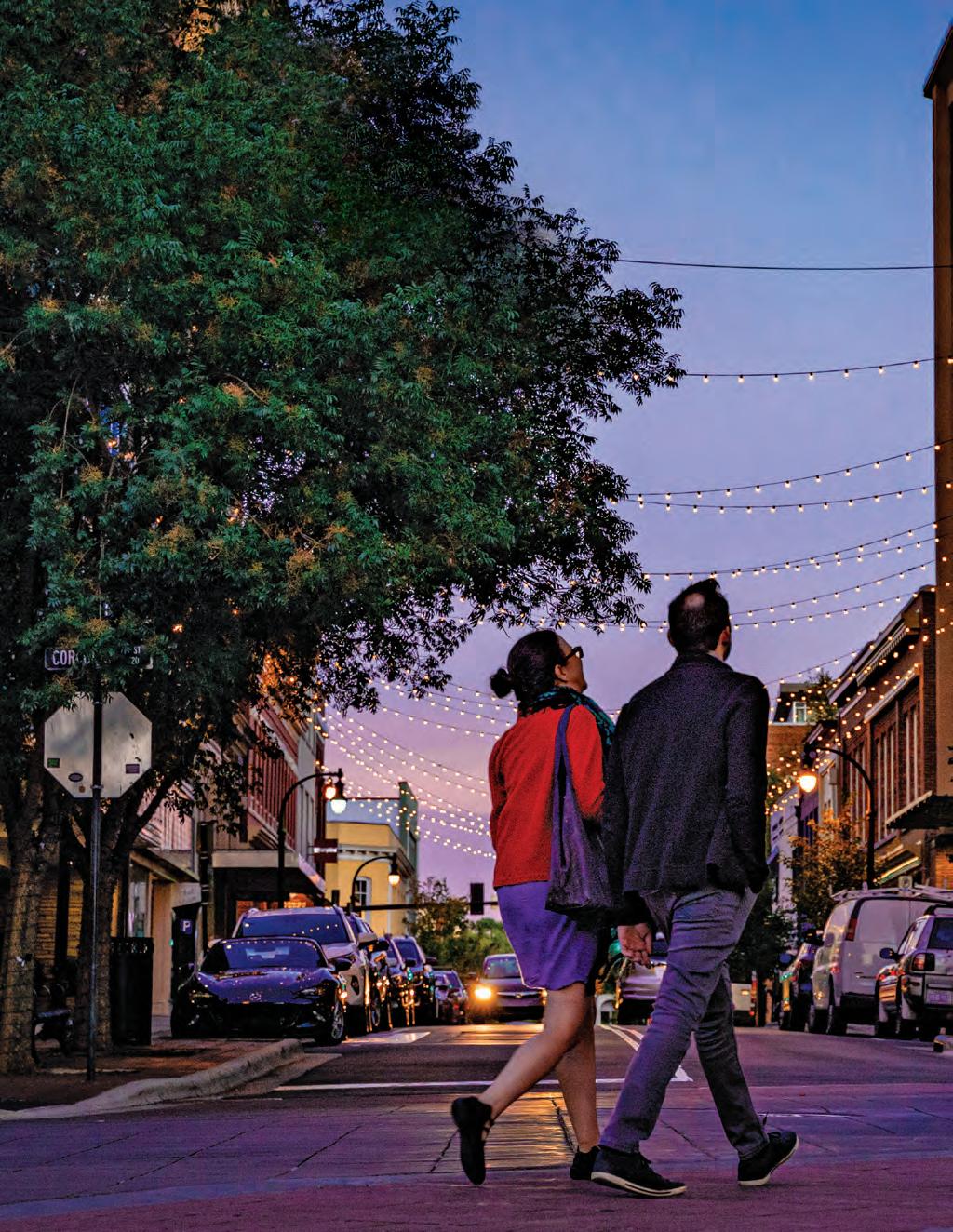
Whether on Duke’s lush and beautiful campus or in Durham’s eclectic urban center, Duke Law students have many opportunities to unwind, enjoy time with friends, explore arts and culture, or take in a sporting event. We encourage students to create a well-rounded life outside of their studies, and the Bull City provides a great mix of activities for students to find what they love. With all that Duke and Durham have to offer, we’re positive that you’ll love your life here!

DUKE GARDENS
55 acres of fields and pathways to explore
MAIN STREET
Walk the shops and restaurants
THE PARLOUR
Local handmade ice cream with seasonal flavors
MOTORCO
Enjoy a drink outside or take in a show by an indie favorite
DURHAM FARMERS’ MARKET
Get year-round offerings from local farmers
PICNIC
Sample some traditional North Carolina BBQ
PRESS COFFEE
Chic cafe with an Italian espresso bar and tasty crepes
THE PINHOOK
Perform at open mic night or take in a comedy show or live rock music
AL BUEHLER TRAIL
Enjoy a run or hike on this trail close to campus
THE ENO
Go tubing, canoeing, swimming, or hiking at this protected waterway and forest
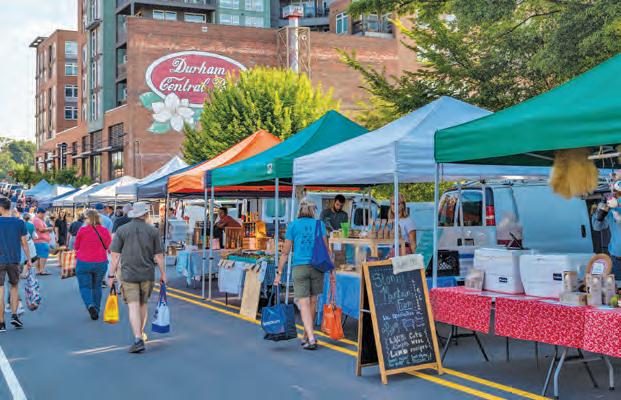
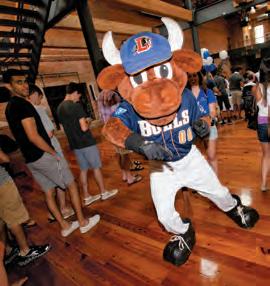

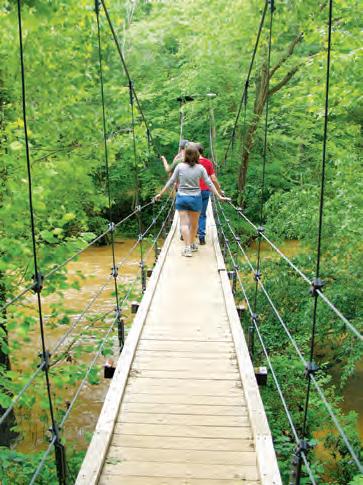
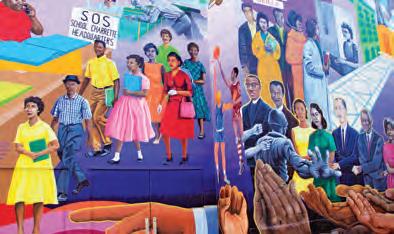


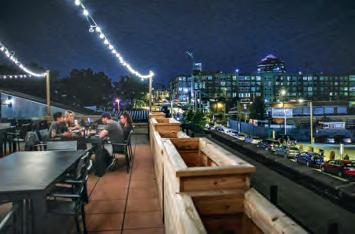
It’s not hard to see why North Carolina, Durham, and the Research Triangle region regularly rank among the nation’s top places to live.
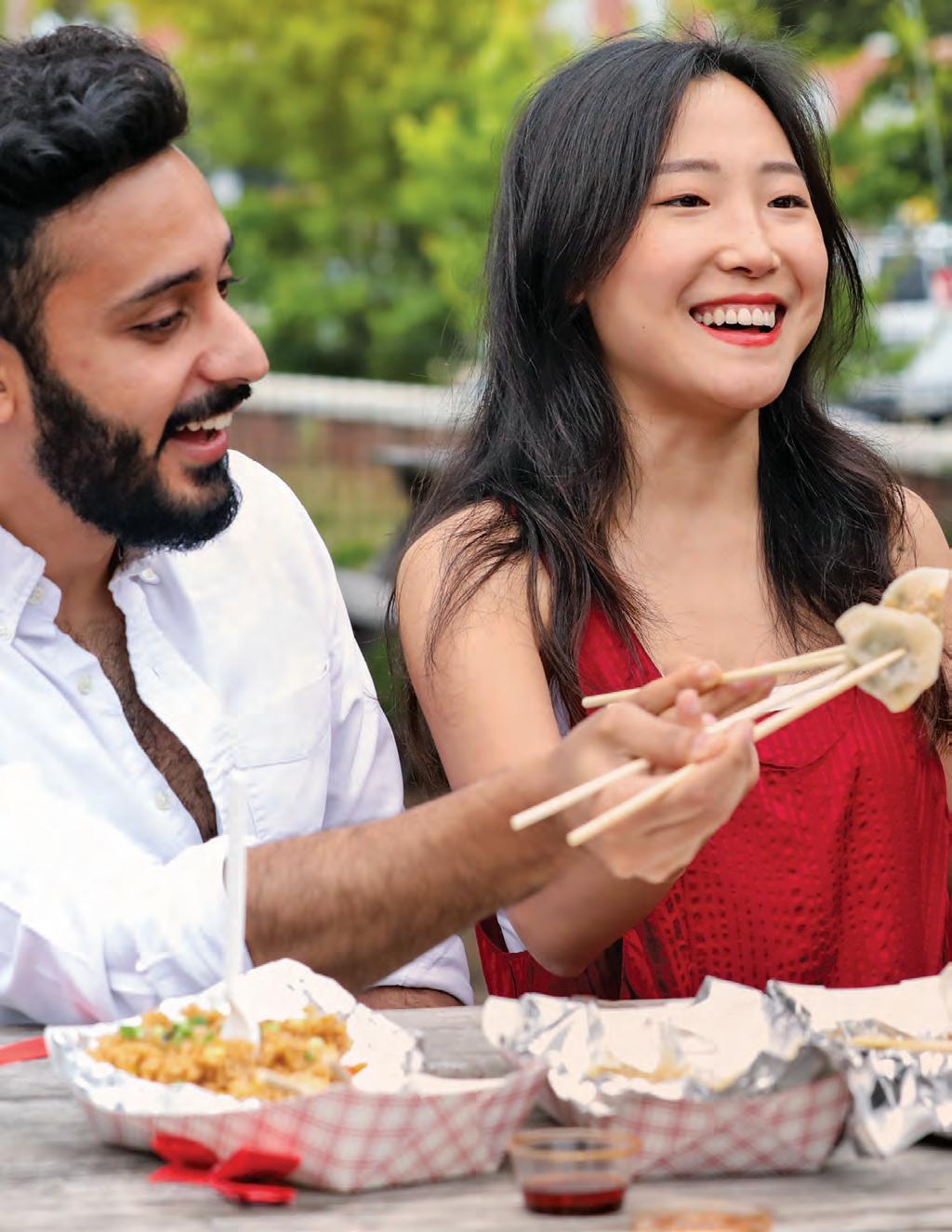
Here you’ll find a temperate climate, affordable cost of living, proximity to the major cities of the East Coast, and a mix of lively downtown amenities and abundant natural resources. Durham provides a significant costof-living advantage for law students. Choosing Duke over schools in more expensive metropolitan areas like New York and Chicago can result in meaningful cost savings — potentially tens of thousands of dollars over the course of your three-year program. The lower cost of living means that you can graduate with less debt and enjoy more of your time in the Bull City.
Three-year savings if you live in Durham instead of Los Angeles: $42,144
COST OF LIVING*
• Los Angeles $39,554
• Chicago $35,217
• New York $34,985
• Washington, D.C. $33,778
• Philadelphia $30,260
• Durham $25,506
*Based on 2024-2025 estimated living expenses at selected law schools as reported on the ABA Standard 509 Information Report.

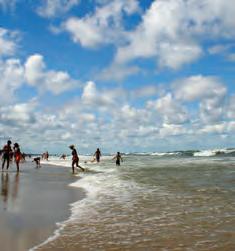




• 10,976 graduate students
• 6,523 undergraduate students
• 10 schools
• 10 libraries
• 11 institutes, initiatives, and centers
• 1,097 acres on four campuses
• 7,044 acres in Duke Forest
• 54 acres in Duke Gardens
• 30 miles of running, walking, hiking, and biking trails in Duke Forest
• 45 campus restaurants and cafes
• 17 team national championships since 1986
• 54 intramural sports
• 23 Olympic medal winners since 1986
• 5 NCAA national men’s basketball championships since 1986
• 8 art and exhibition galleries and The Nasher Museum
• 220+ lemurs living on campus in the largest university-based research facility dedicated to endangered prosimian primates
visit law.duke.edu/apply

Students at Duke Law are part of the larger Duke University community and enjoy all the campus has to offer, including the beautiful Duke Chapel and Duke Gardens, top-flight facilities for the arts and recreation, academic lectures and guest speeches from world-renowned scholars and leaders, and front-row seats to some of the most exciting athletic matchups.
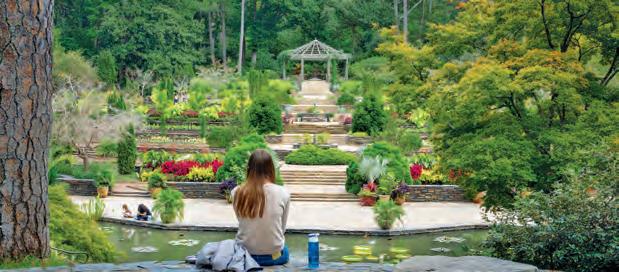
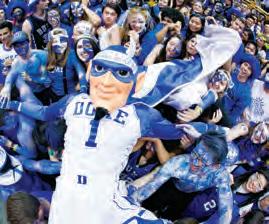

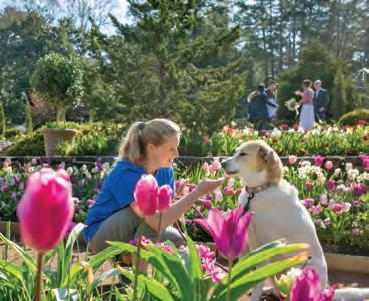

Duke Law Admissions
Duke University School of Law (919) 613-7020
admissions@law.duke.edu law.duke.edu/apply

